When your dog is acting off, it’s usually because something’s up with their tummy. While they can’t exactly tell you what’s wrong, plenty of signs can clue you into their digestive distress. From unexpected behavior to some not-so-pleasant bodily functions, here’s how to tell if your pup’s stomach is troubling them and what you can do to help.
1. Vomiting

If your dog has ever greeted you with a pile of vomit—it’s a classic sign of an upset stomach. One-time vomiting after eating something questionable is often not a big deal. But if it becomes frequent, it’s time to take action. Start by withholding food for a few hours to give their stomach a break, and always keep an eye out for persistent vomiting, which means a vet visit is a must.
2. Diarrhea

Loose stools or diarrhea are pretty telltale signs that your dog’s digestive system isn’t having a good day. It could be something they ate, stress, or even an allergy. If the diarrhea sticks around for more than 24 hours, or if there’s blood, it’s time to call the vet. In the meantime, try offering them a bland diet of boiled chicken and rice to settle their tummy.
3. Loss of Appetite
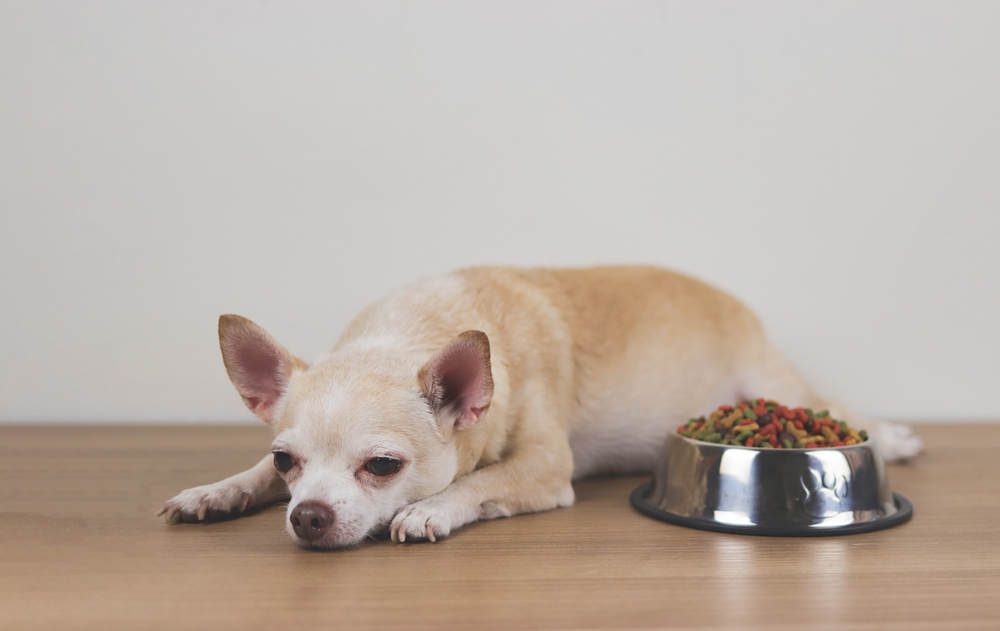
A dog that usually devours their meals but suddenly turns their nose up at food is a red flag. Loss of appetite is one of the more subtle signs of a tummy upset. Monitor your dog closely—if they skip more than a meal or two, it’s time to consult the vet. Sometimes, their stomach needs a little break, but it’s worth getting a professional opinion if they continue to refuse food.
4. Excessive Drooling
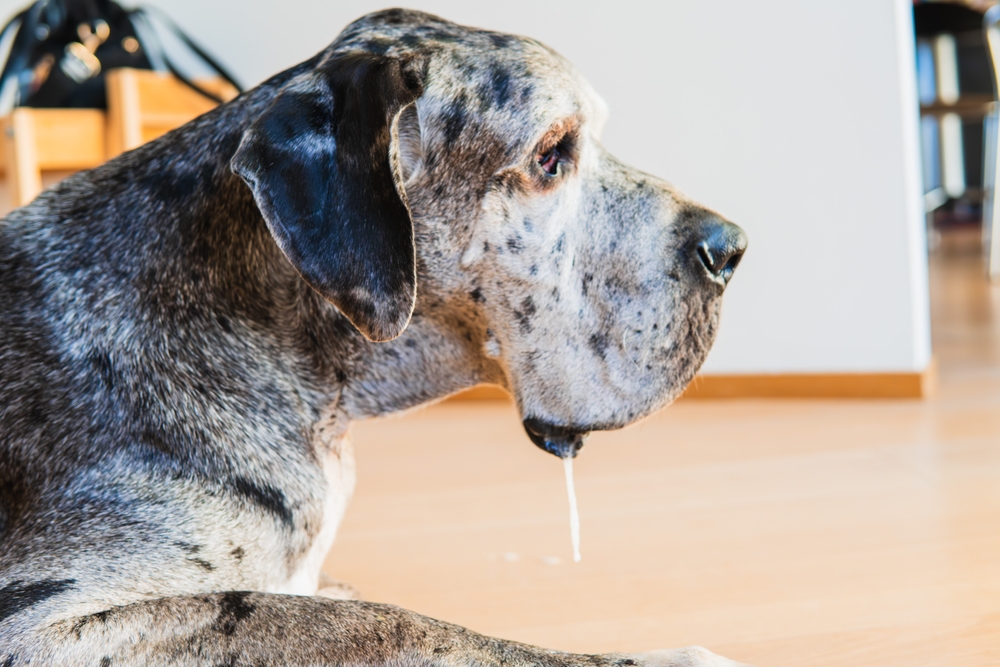
Some dogs drool, and then some really drool when their stomach is upset. If your dog suddenly becomes a drooling machine, it could be because they feel nauseous. Give them a little water and hold off on food to see if their stomach settles. But if the drooling continues and they seem uncomfortable, getting them checked out is probably best.
5. Lethargy

If your normally active dog suddenly has zero energy, their stomach might be to blame. Lethargy is a common sign that something isn’t right, and an upset tummy can make your dog sluggish. Let them rest and monitor their energy levels—if they stay lethargic for more than a day, it’s time for a vet visit. It’s always better to be safe than sorry.
6. Gulping or Licking the Air

If your dog randomly starts gulping or licking the air, it’s a sign that they’re feeling nauseous. This can also happen with acid reflux. Give their digestive system a break and avoid feeding them for a few hours. It could be a bigger issue if they keep gulping, so don’t hesitate to call the vet if this behavior sticks around.
7. Eating Grass
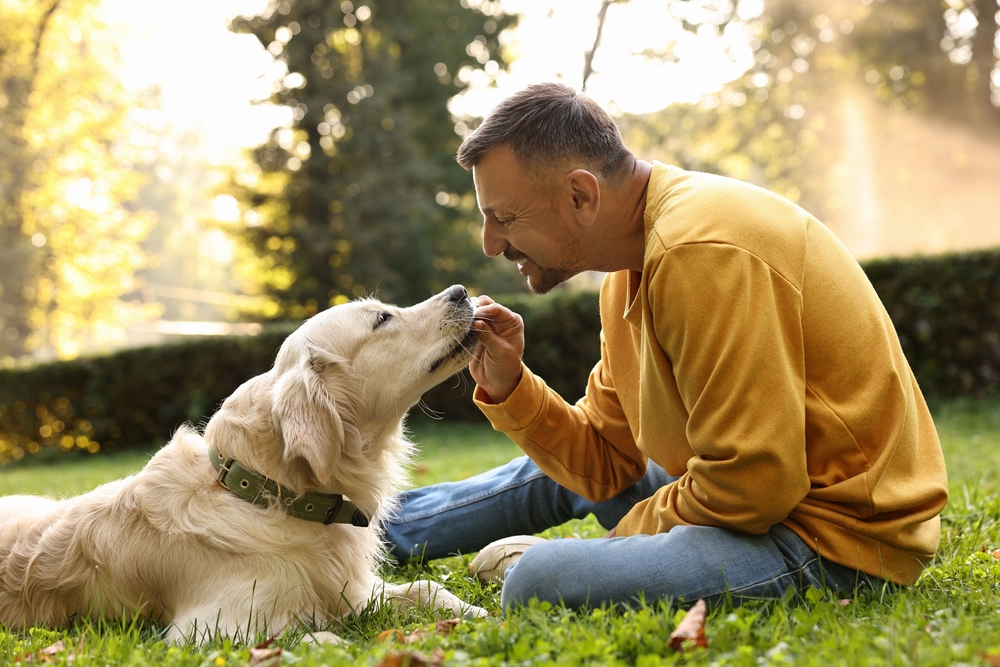
When dogs aren’t feeling great, they head straight for the nearest patch of grass for a snack. It’s a natural instinct—they’re trying to soothe their stomach or make themselves throw up. While the occasional grass-eating isn’t alarming, it’s worth paying attention if your dog does it often. Give them a bland meal afterward to see if that settles things down.
8. Stomach Noises
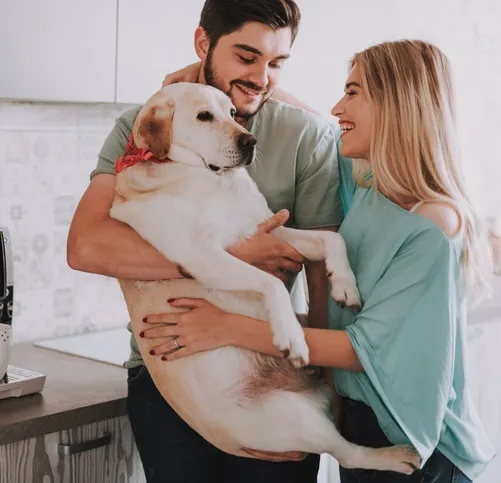
If your dog’s tummy starts making loud, gurgling noises, then their digestive system is working overtime. If the noises are louder than usual and paired with other symptoms, like vomiting or diarrhea, it’s a sign of an upset stomach. Let your dog rest and keep them hydrated, but if the tummy rumbles continue or other symptoms worsen, it’s time to call in the pros.
9. Flatulence

Dogs can have some serious gas, but excessive or foul-smelling flatulence can indicate their stomach is unhappy. Too much gas could mean they ate something that didn’t agree with them or their diet needs a tweak. Keep an eye on what they’re eating and consider a bland diet for a day or two to see if things calm down.
10. Abdominal Pain

If your dog is unusually protective of its belly or flinches when you touch its stomach, it might be experiencing some discomfort. Dogs with abdominal pain may also adopt weird positions, like hunching over or curling up tightly. If your dog seems uncomfortable for more than a few hours or their belly looks swollen, it’s time for a vet check to rule out any serious issues.
11. Excessive Burping

Like us, dogs burp when they’ve swallowed too much air or have an upset stomach. Occasional burps are no big deal, but it’s worth paying attention to if your dog seems to be burping all the time. You can try slowing down their eating by using a slow feeder bowl to prevent gulping, but if the burping continues, consider reaching out to your vet to get to the root of the issue.
12. Constant Stretching

If you catch your dog stretching out like they’re doing yoga—front paws extended, back end in the air—they might be trying to relieve some stomach discomfort. This “prayer position” can help ease pressure in their abdomen. If they’re doing this often, it’s a sign that something is off. Give them some time to rest and monitor for other symptoms, but a vet visit might be necessary if the stretching continues.
13. Dehydration
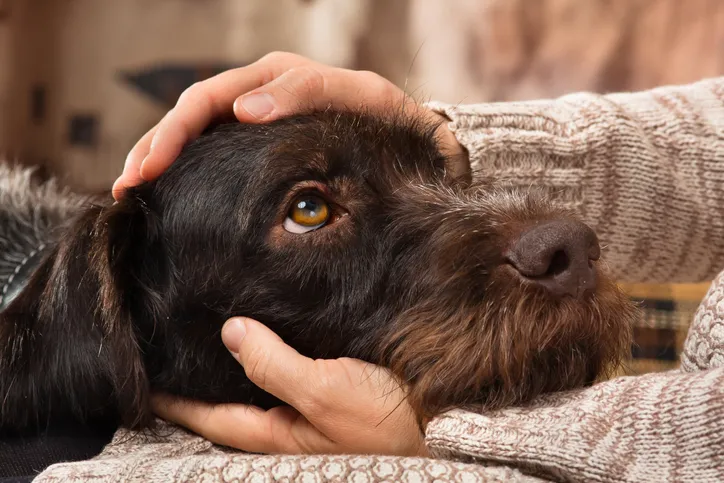
An upset stomach can lead to dehydration, especially if your dog is vomiting or has diarrhea. To check if your dog is dehydrated, gently pull up the skin on the back of their neck—if it doesn’t snap back quickly, they may need more fluids. Offer water frequently, but if your dog refuses to drink or seems weak, they may need a vet to help rehydrate them.
14. Unusual Pooping Habits

If your dog is having trouble going to the bathroom, or you notice their poop is abnormal—like switching between diarrhea and constipation—it’s a sign their digestive system is struggling. Monitor their bathroom habits and consider giving them a bland diet. If things don’t go back to normal after a couple of days, it’s time to check in with your vet to ensure nothing more serious is going on.
15. Changes in Behavior

Sometimes, the signs of an upset stomach are subtle, like changes in your dog’s behavior. If your typically calm dog is pacing or seems anxious, or if your energetic dog suddenly wants to sleep all day, it could be their way of telling you something’s wrong with their tummy. Pay close attention to any shifts in behavior and be ready to act if the changes last more than a day.
